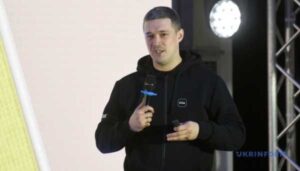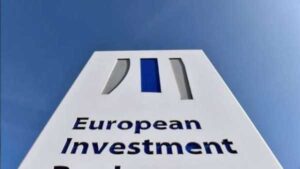Latest news for today in Ukraine
Latest news for today in Ukraine

Ukraine's G-7 Plus Energy Infrastructure Assistance Facility has attracted thousands of pieces of essential equipment, but resilience work needs to continue and be part of a longer-term plan for the future, U.S. Deputy Assistant Secretary of State for Energy Diplomacy at the Bureau of Energy Resources Laura Lochman has said.
Since October alone, G-7 Plus has connected more than 4,000 generators, 1,000 transformers, and more than 5,000 pieces of equipment, such as circuit breakers and other equipment, to the grid, she noted at a Ukrainian-American partnership forum organized by the American Chambers of Commerce of the two countries last week in Washington.
Lochman said that last week the EU-US Energy Council met in Brussels, and that was the main topic of the conversation, which is ongoing.
Among the tasks and options for their solution, she noted the importance of public-private partnerships, which made it possible to achieve such a significant result, as well as the ability to quickly create and maintain the efficiency of this G-7 Plus assistance mechanism, which includes many allies and partners, as well as international financial institutions.
According to her, in many respects the partners rely on the fact that the Ukrainian colleagues will define their vision, on the basis of which it is necessary to develop a single strategic plan, and then specific directions of action for its implementation. The results of this work could be considered at the Ukraine Recovery Conference at the end of June this year in London, Lochman added.
In particular, she pointed to Ukraine's potential not only to meet its own domestic energy needs, but also to become a powerful source of energy for the European region. According to her, the country has the necessary elements for this in the field of nuclear energy, natural gas, biomass, as well as renewable energy.
The representative of the Department of State noted that such potential with the implementation of European norms and standards, improved corporate governance and the rule of law would help attract private investment in the energy sector.
GE Chief Sustainability Officer Roger Martella confirmed that the success of such rapid assistance to Ukraine in such an uncertain environment was largely due to public-private partnerships on the part of donors. The U.S. government, the Department of State, they risked everything they could for us, made our lives easier so that we could focus on what we do best, which is production, supply and operation of equipment, he stated.
Closer coordination between private companies is also needed to understand what each can do best, he said.
Mark Loughran, President of Honeywell in Central and Eastern Europe, in turn, noted the importance of starting a discussion with a small number of very experienced companies as soon as possible about the necessary technical specifications for future deliveries, in order to then move on to a wide audience for their purchase. The expert explained that the amount of time and human effort that is required for such work is enormous, it itself can take from 12 to 18 months.
According to him, it's not just about hardware, but also about software, digital capabilities.
Martella from GE supported his colleague's opinion on the need to have a plan for a 2-3-4-year horizon, pointing out that the situation with the need for urgent assistance to Ukraine has become a wake-up call for the whole world, as reserves and stocks of power equipment turned out to be small, while the deadlines for their manufacture is significant.
According to Alisa Newman Hood, Executive Vice President and General Counsel of Excelerate Energy, European governments have endured a similar experience, relying solely on Russian pipeline gas and pivoting to create redundancy and alternatives.
This crisis taught us 10 lessons about the supply chain, it taught us 100 lessons about the need for redundancy, Hood said.
According to her, representatives of Ukraine in the negotiations show sufficient foresight to create redundancy in their energy sources. In particular, she referred to Energy Minister Herman Haluschenko, who said backup energy infrastructure was needed to avoid vulnerabilities and overcome market fluctuations, monopolies and geopolitical threats.
Source: www.en.interfax.com.ua



